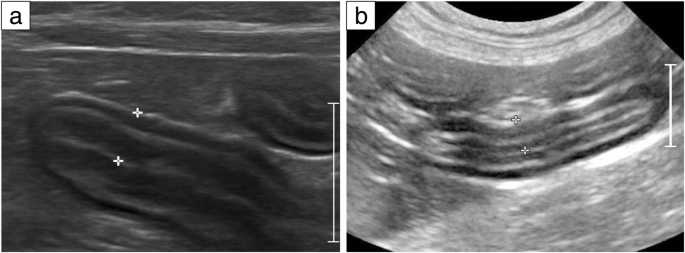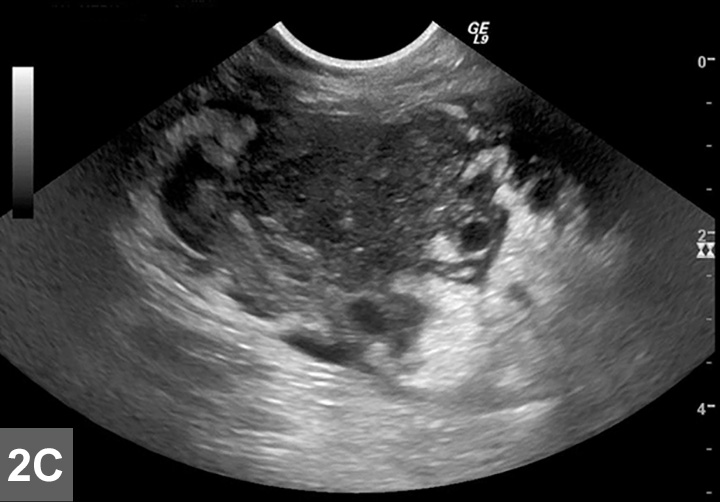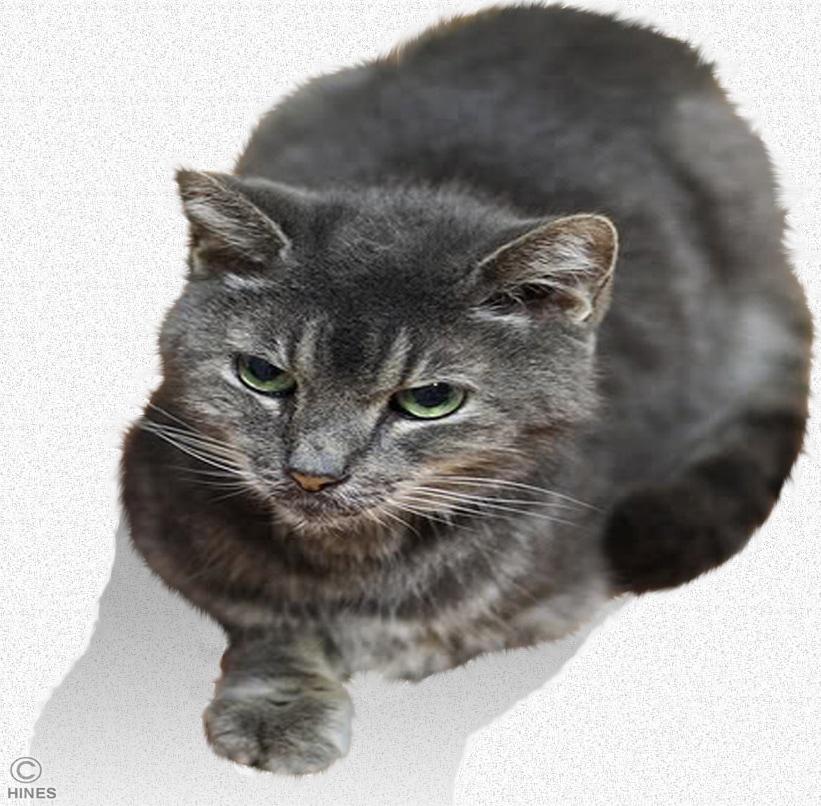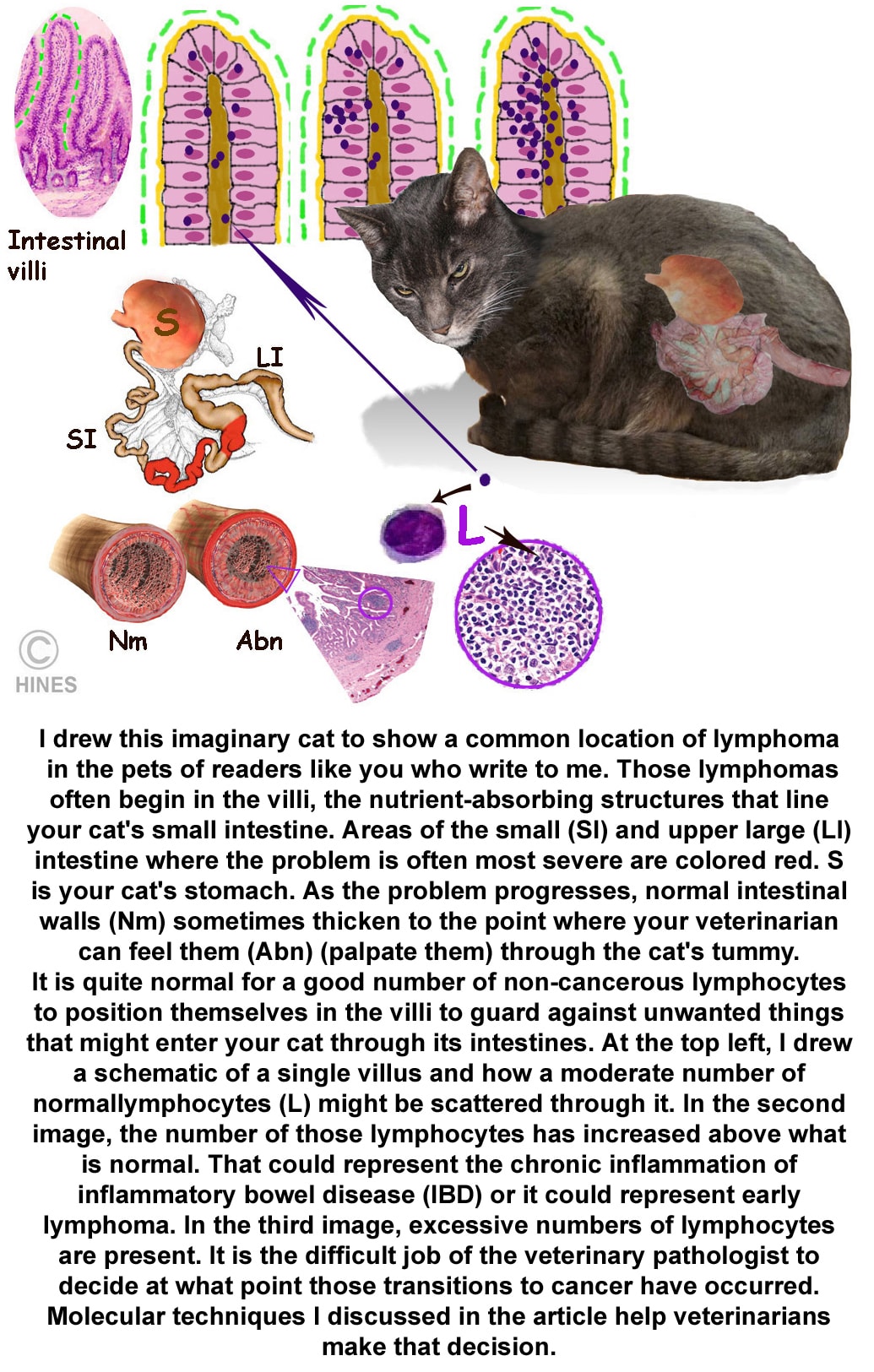gastric lymphoma in cats
This term describes lymphoma that affects the gastrointestinal tract. Most commonly it affects the small intestine but it can also involve any part of the gastrointestinal tract from the rectum to the esophagus.

Read About Gastroenterology In This Article By Sandra Grover
What are the presenting signs.

. This disease can therefore vary from something which cats can live with for some time without illness to a rapidly progressive and fatal condition. Feline GI lymphoma appears to occur as one of two major types with a portion of cats being affected by a more indolent small-cell lymphocytic form of lymphoma and others having a more aggressive large-cell lymphoblastic form of lymphoma. These signs and diagnostics are often indistinguishable from.
Gastrointestinal lymphoma in cats is a form of alimentary cancer which occurs in the intestinal tract of a cat. 48 Treatment of large-cell feline GI lymphoma with multiagent chemotherapy protocols has led to median remission durations of. Over time it can.
As this blood is coming from further up in the digestive tract the cats body is digesting. An abdominal mass may develop that can be felt on a physical examination. Most cats are feline leukemia virus-negative and feline immunodeficiency virus-negative.
Cats like dogs can develop mediastinal multicentric gastrointestinal and extranodal growths but in cats gastrointestinal growths are most likely. Sixteen cats with stage I and II gastric lymphoma treated with chemotherapy were included in this study. Response to treatment was prognostic as in other types of feline lymphoma.
Malignant lymphoma in cats tends to affect the T-lymphocytes in younger cats and the B-lymphocytes in older ones though cats of any age can get either variant of the disease. Gastro lymphoma in cats Gastrointestinal lymphoma is one of the most common types of lymphoma in cats. Alimentary or Intestinal Lymphoma By far the most common lymphoma in cats this type of lymphoma affects the guts.
Common sites of lymphoma in cats include. Some of the most common symptoms of feline gastrointestinal lymphoma include. This is by far the most.
Mediastinal Lymphoma This type of lymphoma grows in your cats chest usually between their lungs. Intestinal Lymphoma in Cats Lymphoma in cats is now most commonly seen in the intestines. Indications for surgery in cats with GI lymphoma are gastrointestinal obstruction gastrointestinal perforation.
Eventually the disease will be fatal. It is a very common cancer that affects cats with it making up approximately 30 of cancer diagnoses. Feline lymphoma or lymphosarcoma is the most common form of cancer in cats.
Overall first remission duration was 108 days. While it can affect the entire body one type of feline lymphoma that affects the gastrointestinal tract is the most common making up approximately 23 of all cases. It is perhaps one of the most common types of all cancer associated with cats.
Even the tumor itself bleeds as well. Signs of Gastrointestinal Lymphoma in Cats As the alimentary form can affect any part of the stomach or intestines it often causes related symptoms such as weight loss lethargy loss of appetite vomiting and diarrhea. When your cat has this disease its important to recognize and understand the end stages and to know what choices to make for your cats sake.
A retrospective study of feline gastric lymphoma in 16 chemotherapy-treated cats. Seventy-five percent of cats experienced remission. Its highly treatable but incurable.
Histopathologic Types Clinical Presentation Diagnosis and Staging As more studies have examined our ability to diagnose lymphoma in cats using cytology histopathology immunohistochemistry andor PCR testing for antigen receptor rearrangement conflicting reports have. Feline gastrointestinal lymphoma This is a spectrum of diseases including low grade lymphoma high grade lymphoma and large granular lymphocyte lymphoma LGL. Intestinal lymphomas usually cause poor eating weight loss diarrhea and.
Gastrointestinal lymphoma is a common cause of anorexia and weight loss in older cats with or without vomiting or diarrhea. Feline gastric lymphoma which is also commonly referred to as Gastrointestinal Lymphoma or GI Lymphoma is a malignant cancerous tumor that disrupts the normal lining of the cats stomach causing erosion of the stomach lining and even ulcers that will bleed. Lymphoma in cats is the gastrointestinal tract.
This type of lymphoma is linked to nearly 70 of cases in cats source and is most common in seniors ranging from 10-13 years old. Appetite loss Weight loss Vomiting Diarrhea. The purposes of this study were to describe cases of feline gastric lymphoma with regards to signalment clinical presentation laboratory and ancillary study findings response to therapy and outcomes and to identify prognostic variables.
Bloodwork is likely to be normal in cats with gastrointestinal lymphoma and ultrasound of the intestinal tract may show thickening of intestines or intestinal masses though it may also appear normal. Renal Lymphoma Lymphoma can also affect the kidneys. Get NHVs most useful pet cancer supplements in one holistic pack.
Ad Help your pet cope with symptoms like nausea loss of appetite and energy. Intestinal lymphoma is the most common form of lymphoma in cats. Definitive diagnosis of gastrointestinal lymphoma requires.
Managing feline gastrointestinal lymphoma Proceedings Important Considerations For Diagnosis Of GI Lymphoma. Feline gastrointestinal tract lymphoma immunohistochemistry lymphocyte antigen receptor gene rearrangement CD3 CD79a granzyme B Lymphoma is the most common hemopoietic neoplasm in the cat and the incidence is reported to be the highest for any species592127Since the decline in the United States in the. Intestinal lymphoma originates in the GI tract and will often be accompanied by severe gastrointestinal symptoms.
In this form of lymphoma lymphoid organs in the chest such.

Lymphoma In Cats Veterinary Partner Vin

How To Diagnose Feline Intestinal Lymphoma 9 Steps

Figure 8 From Extranodal Lymphoma In The Cat Semantic Scholar

Figure 8 From Extranodal Lymphoma In The Cat Semantic Scholar

Feline Lymphoma Clinician S Brief

Feline Low Grade Alimentary Lymphoma An Emerging Entity And A Potential Animal Model For Human Disease Springerlink

